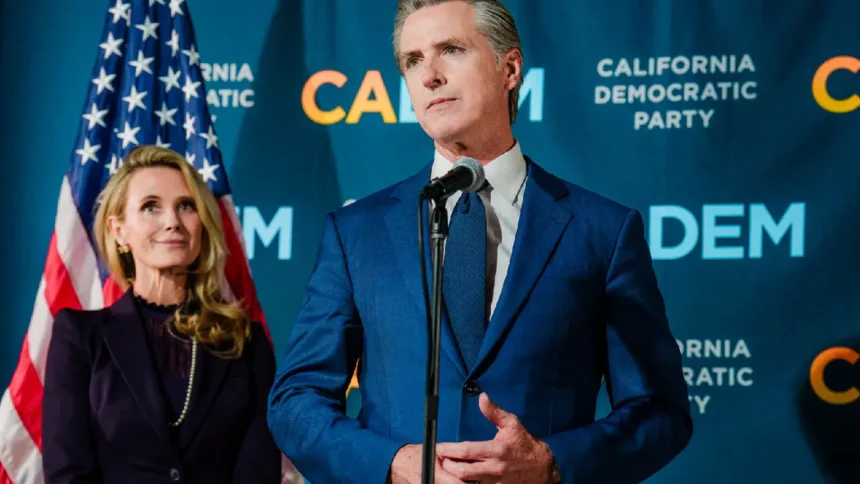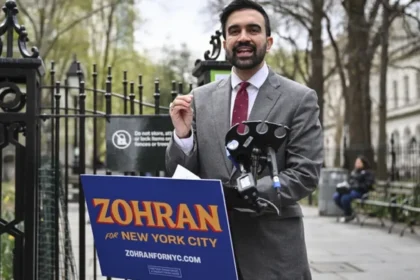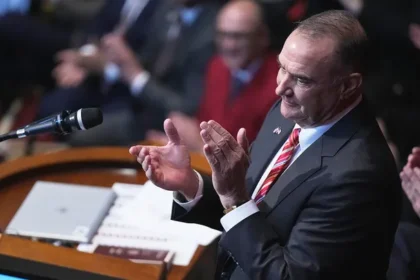Redistricting reform shifts political balance as Democrats secure new congressional leverage
California voters have overwhelmingly approved Proposition 50, a constitutional amendment allowing the state Legislature to take over congressional redistricting for the next three election cycles. The measure pushed by Governor Gavin Newsom and backed heavily by Democratic leaders marks one of the most consequential political developments in the state’s modern history.
Proposition 50 passed with roughly 63 percent of the vote, handing Newsom a decisive victory that will reverberate far beyond California. By transferring map-drawing authority from the state’s independent redistricting commission to the Democrat-controlled Legislature, the new law gives Democrats a significant edge in shaping the political landscape heading into the 2026 midterms and beyond.
A Redrawing of Power
At its core, Proposition 50 changes who controls California’s political boundaries. For the next three election cycles 2026, 2028, and 2030 lawmakers, rather than independent commissioners, will oversee how congressional districts are drawn. Supporters say the change is essential to ensure fair representation amid aggressive redistricting maneuvers in Republican-led states.
Governor Newsom and Democratic strategists argued that the move would “protect California’s voice in Congress” and counter attempts by conservatives to secure long-term control of the U.S. House through gerrymandering. Critics, however, warn that the measure undermines the state’s previous commitment to impartial map-drawing and gives one party excessive influence over electoral outcomes.
Early analyses suggest the new district maps could flip as many as five Republican-held seats, tightening Democrats’ grip on the state’s 52-member congressional delegation. That shift could prove pivotal in determining which party controls the U.S. House of Representatives in the next election cycle.
Newsom’s Political Calculations
The victory reinforces Gavin Newsom’s reputation as a skilled political tactician and solidifies his position as one of the Democratic Party’s most influential leaders. Having already built a national profile through his vocal opposition to conservative governors and policies, Newsom can now claim a tangible structural win for his party.
Observers see Proposition 50 as part of Newsom’s broader strategy to expand Democratic power both within California and nationally. It also serves as a potential springboard for a future presidential run. By framing the initiative as a defense of democracy and fair representation, Newsom tapped into broader voter frustration with partisan manipulation of electoral boundaries.
In his post-election remarks, Newsom celebrated the result as “a victory for fairness, for democracy, and for every Californian who believes our voice should count equally.”
Mixed Reactions Across the Aisle
Reaction to the measure’s passage has been sharply divided. Democratic leaders praised it as a necessary corrective to what they describe as a decade-long imbalance in national representation, driven by Republican-controlled states’ aggressive redistricting.
Republicans and election-integrity groups, however, condemned the result as a partisan power grab. They argue that dismantling California’s independent redistricting commission contradicts the very principles of fair governance the measure claims to defend. Legal experts anticipate multiple challenges in state and federal courts, alleging violations of equal-protection rights and diminished representation for minority communities.
Despite those objections, the scale of voter support crossing 60 percent statewide underscores the resonance of Newsom’s argument that California must “fight fire with fire” in response to GOP-driven redistricting efforts elsewhere.
Implications for Congress and the 2026 Midterms
The most immediate consequence of Proposition 50 will be the redrawing of California’s congressional districts in time for the 2026 midterm elections. Political analysts expect the Legislature’s new maps to consolidate Democratic advantages in suburban regions around Los Angeles, the Bay Area, and parts of Orange County, while targeting several narrow Republican-held districts in the Central Valley and Inland Empire.
The potential gain of up to five Democratic seats could prove decisive in the national balance of power, especially given the razor-thin margins that often decide control of the House. For Republicans, California’s shift represents a strategic setback that may require a recalibration of national campaign strategies and funding priorities.
Broader Political Significance
Beyond its electoral implications, Proposition 50 reignites the national debate over how congressional maps are drawn and who should draw them. Independent redistricting commissions were once celebrated as reforms that reduced partisanship and restored voter confidence. But as partisan redistricting resurges nationwide, the California vote suggests that even reform-minded states are willing to abandon neutrality in favor of political pragmatism.
Some analysts view the move as the beginning of a new era of “open partisan redistricting,” where states prioritize national outcomes over traditional notions of independence and fairness. Others warn that such strategies risk eroding public trust and may trigger a wave of retaliatory laws in Republican-dominated states.
What Comes Next
California lawmakers will now begin the process of drafting the new congressional maps, expected to be unveiled in mid-2026. Public hearings and consultations are planned, though critics question whether those processes will meaningfully influence the final boundaries.
Meanwhile, lawsuits from Republican officials and voter-rights organizations are already being prepared, setting up a high-stakes legal battle that could reach the U.S. Supreme Court. Until then, Proposition 50 remains a defining moment in the nation’s ongoing struggle over democracy, representation, and power.
Final Thought
California’s approval of Proposition 50 marks both a political milestone and a moral dilemma. It gives Democrats a crucial edge in shaping Congress while challenging the principles of impartial governance that California once championed. For Governor Gavin Newsom, it’s a personal and strategic triumph one that cements his role as a national Democratic power broker and perhaps foreshadows a larger stage ahead.
Whether this new approach strengthens democracy or simply changes the shape of partisan advantage will depend on how fairly the new lines are drawn and how voters respond in 2026.











